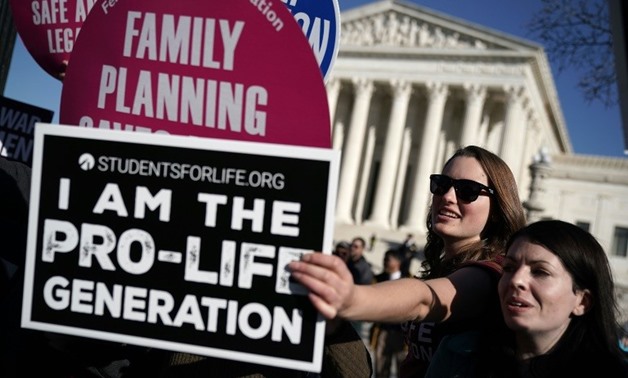
An Iowa bill banning abortions once a fetal heartbeat is detected is expcted to trigger a legal battle, which conservatives hope will land the flashpoint social issue back at the US Supreme Court
5 May 2018: The governor of the US state of Iowa signed into law Friday a ban on abortions once a fetal heartbeat is detected, which occurs as early as six weeks into a pregnancy.
The bill, approved by the Midwestern state's Republican-controlled legislature just two days earlier, was expected to trigger a legal battle, which conservatives hope will land the flashpoint social issue back at the US Supreme Court.
"I understand and anticipate that this will likely be challenged in court," Governor Kim Reynolds said in a statement after the signing.
"However, this is bigger than just a law. This is about life. I am not going to back down from who I am or what I believe in," she said.
Considered the most restrictive in the country, critics say the law would deny abortions to many women before they even know they are pregnant -- with an exception for victims of rape or incest.
The state legislature approved the bill Wednesday after heated debate.
Abortion foes celebrated, hailing the legislation as the first step in potentially dismantling Roe v. Wade -- the landmark 1973 Supreme Court decision that granted women the legal right to an abortion.
But the Supreme Court in 2016 rejected appeals by both North Dakota and Arkansas to preserve similar "heartbeat" laws, which had been struck down by lower courts.
Abortion opponents in Iowa argued that the Republican administration of President Donald Trump may have an opportunity to appoint more conservatives to the high court in the next few years, just in time for this latest law to wind through the legal system.
The American Civil Liberties Union condemned the Iowa bill's passage Wednesday and vowed to defend abortion rights in the state.
"All we can say right now is that we fought this legislation every step of the way and regret that it has made it this far," ACLU of Iowa's spokeswoman Veronica Fowler told AFP.
"It is clearly unconstitutional and it effectively blocks the right (to) an abortion for most women," she said.

Comments
Leave a Comment